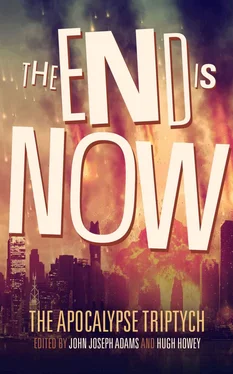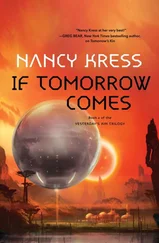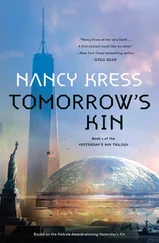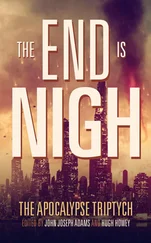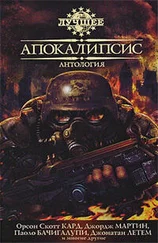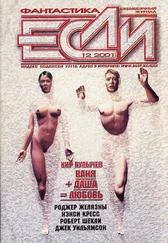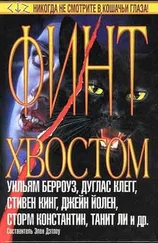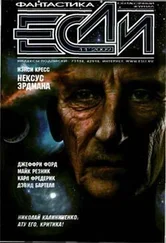People were standing in the surf, up to their knees. Some up to their waists. Some of them tried to get back to the sand. Some of them staggered back, pushed by the waves.
Some of them were screaming. That was what he’d heard. Not gulls—screaming people.
“Where are the boats?” Angie asked again.
An amplified voice boomed out over the sand. “Keep moving into the water. You will not be allowed back onto the shore. Keep moving into the water. There is no room on the beach. Keep moving.”
“Wait,” Angie said. “Wait—are we—did we come all this way to—”
A big man came stumbling up out of the waves, hands and feet clawing at the wet sand, trying to get purchase. His mouth was a dark O sucking at the air. Whitman thought the man must be a zombie but no, his eyes weren’t red, his eyes were fine—
Shots rang out and blood erupted from the man’s chest. He collapsed into the surf and everyone started screaming, dropping to the ground, covering their heads with their hands.
“Keep moving into the water,” the amplified voice said again. “You will not be allowed back onto the shore.”
“No,” Angie said. “No. I won’t—I won’t just walk out there and drown. They can’t make me! I have rights!”
She had a plus sign on the back of her left hand.
“Reverse triage,” Whitman said. You treated those who had the best chance of surviving. The uninfected. Those who were already exposed, or even potentially exposed, you didn’t waste resources on them.
There had been a saying they’d had at the CDC. A mantra they repeated so they would never forget: Sometimes the cure is worse than the disease.
“Keep moving into the water.”
The sound of the surf, the screams. Occasionally he would hear the stutter of machine gun fire. Not often. That was why they were pushing people into the water. It was why the military had, he assumed, started the rumor of boats landing at Brighton Beach. Because there weren’t enough bullets for all the positives, but it didn’t cost anything to force people out into the water and let them drown.
“Keep moving into the water.”
Whitman’s head throbbed with horror, with regret, with anger. But maybe—maybe there was still something, some hope . . . his ID card, his CDC credentials, were in a plastic pouch around his neck. He reached inside his shirt and pulled out his lanyard. He held his ID up over his head. “CDC!” he shouted. “I’m CDC! Get me out of here! CDC!”
All around them people stared. People looked at him with hate in their eyes, and he didn’t blame them. He tried to shove through, to get to the nearest soldier, but the people shoved back.
“CDC! CDC!” It wouldn’t matter, he was a positive too. They wouldn’t care, they wouldn’t make an exception. Somebody grabbed the ID and nearly strangled him as they pulled it away from him. He pushed the lanyard over his head, just to stop it from choking him. “CDC,” he said again, “I’m CDC.”
Then he saw who had grabbed the ID. It was a soldier in full combat armor, his eyes hidden behind light amplifying lenses. He stared at the card for a long time.
“You’re CDC?” the soldier asked. “What the hell are you doing down here?”
“You have to get me out of here,” Whitman said. “And my wife and our baby. You have to get my family out of here. He grabbed Angie and pulled her close. She was smart enough to bury her face in his neck, as if they were together.
The soldier grabbed Whitman and hauled him toward the boardwalk. A few positives tried to interfere, but the soldier knocked their hands away with his weapon. Nobody had the strength to fight back.
Up on the boardwalk soldiers were gathered in a line. Whitman and Angie were shoved through, into an open space beyond. Whitman’s ID was cut off his neck and taken away.
Angie clutched at him and he wished he could tell her what was happening. He wished he knew himself. More soldiers came bustling toward them. One of them, with the eagle insignia of a Colonel, had Whitman’s ID in his hand.
“Where the hell have you been, sir?” he asked.
Angie looked up into Whitman’s face. “Sir?” she asked.
“I, uh—I got separated from a reconnaissance group,” Whitman said. “I was looking for my wife and child, here. We found each other but then I couldn’t . . . I couldn’t . . .” He couldn’t finish the lie.
But the colonel nodded. “Emergencies like this, I’m surprised half my troops know where to be, much less the civilian staff. Well, thank God we found you in time. I’ll get a helicopter down here to take you back to Manhattan and the forward headquarters. We need every warm body we can get working on the evacuation. I don’t need to tell you what a clusterfuck this has become.”
“No, Colonel, you don’t. My wife and baby will of course—”
“Mr. Whitman, I appreciate what you’re trying to do. And we need you, badly. We’ve already lost Staten Island and the Bronx is . . . there’s nothing left up there. So I’m going to break regulations and let a positive into Manhattan.”
“Of course, as you should, and—”
“One positive. I know you’re not married, sir. And you don’t have a baby.”
Soldiers came forward then, soldiers with guns and they shoved Angie, they shoved her back toward the sand. She screamed. She screamed his name and she held up the baby like it would change somebody’s mind, like it meant something. The baby lifted its arms, held them up in supplication. Whitman could see the tiny plus sign marked on the back of its left hand.
Angie kept screaming, as they pushed her down the beach. He could hear her screaming, long after they put him in a helicopter and flew him away.
* * *
They would let him live. They needed him. They needed him to come up with ideas, ideas about what to do next. Ideas about how to manage the end of the world.
Like the idea that anyone who was potentially positive should be marked, that the back of their left hand should be marked with a plus sign.
That had been Whitman’s idea, originally.
He’d been proud of it.
ABOUT THE AUTHOR
David Wellingtonis the author of the Monster Island trilogy of zombie novels, the 13 Bullets series of vampire books, and most recently the Jim Chapel thrillers Chimera and The Hydra Protocol. “Agent Unknown” (The End is Nigh) and “Agent Isolated” are prequels to Positive, his forthcoming zombie epic. He lives and works in Brooklyn, New York.
THE GODS WILL NOT BE SLAIN
Ken Liu
Wildflowers in a thousand hues dotted the verdant field; here and there, fluffy white rabbits hopped through the grass, munching happily on dandelions. “Cute!” Maddie exclaimed. After that hard fight against the Adamantine Dragon, Maddie certainly welcomed the sight.
Maddie, a lanky monk in saffron robes, cautiously tiptoed closer to one of the rabbits. Her father, a renegade cleric in a white-and-red cloak who had turned from the god Auroth to the goddess Lia—pleasing neither though able to wield artifacts charged by both—stayed behind, alert for signs of fresh danger.
She squatted down next to the rabbit to pet it, and the creature stayed in place, gazing at Maddie with large, calm, brown eyes that took up a third of its face.
The force-feedback mouse vibrated under Maddie’s hand.
“It’s purring!” she said.
A line of text appeared in the chat window in the bottom left corner of Maddie’s computer screen:
Not the most realistic portrayal of a rabbit I’ve seen.
“You have to admit the haptic modeling is amazing,” Maddie said into her headset. “It feels just like petting Ginger, except Ginger isn’t always in the mood to be petted. But I can come see these rabbits any time I want.”
Читать дальше
